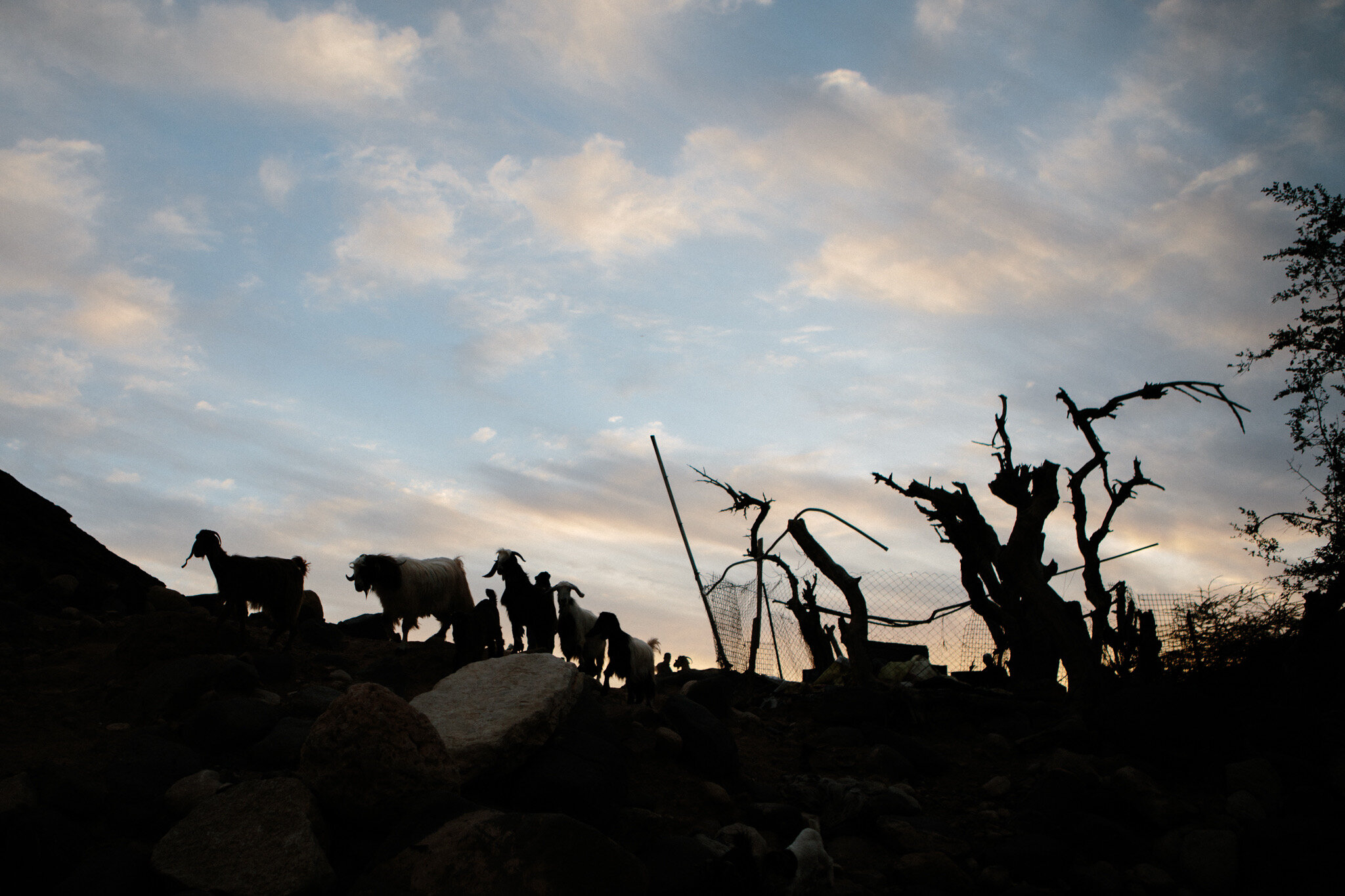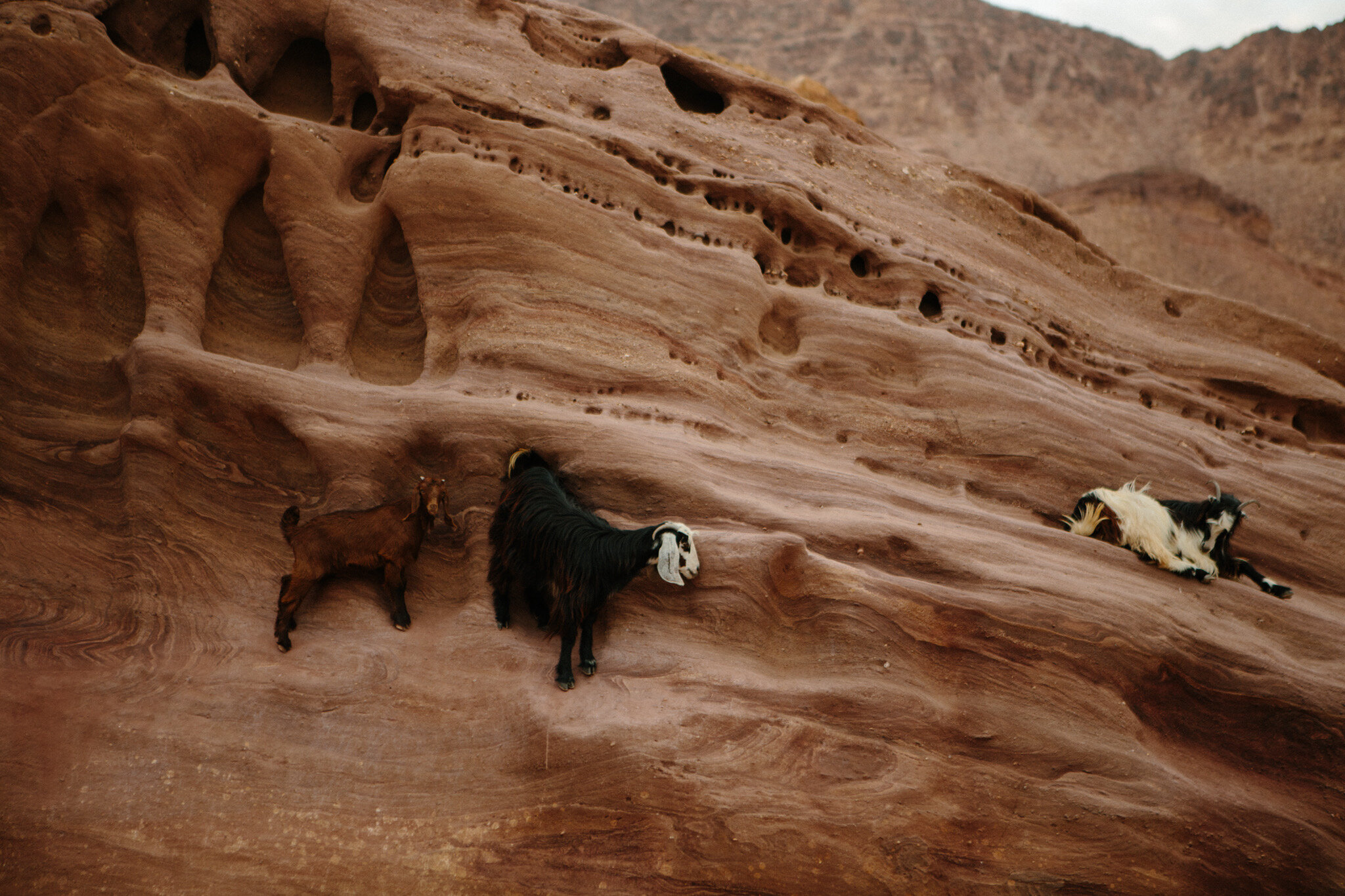Spend more than five minutes in any airport, and you’ll hear a woman’s voice over the intercom calmly warning you against unattended baggage. When a young man requested that Alyse and I keep his bag while he stepped outside of the JFK airport to smoke, it raised a red flag in both of our minds.
We declined, reluctant to engage in any small talk, but he asked where we were headed.
“Pakistan.”
“Oh,” he replied, weirdly. “You know, people tell me to be safe, but I won’t tell you that. God will keep me safe.”
This man was shorter than I am, muscular, Korean-American. He wore a backpack larger than his whole body and sported a snapback and bro tank--not exactly the criminal-type, but his vibe caused us to be suspicious nonetheless.
“I’m going to India,” he said without any prompting. “I’m going to find myself.”
“Is it a one-way-ticket situation?” I asked. I figured that would sound at least more flattering than a trite “Eat, Pray, Love situation.”
“How did you know?,” he asked with a stern glare. He looked at me like I had just caught him committing a crime. “Are you following me?”
I surveyed his appearance in greater detail (in the event that an account to the police would be necessary in the future) and noticed that he had a spray can of electronic coolant in his backpack. I didn’t know what that was, but it seemed unusual.
We made three attempts to alert airport personnel to double security check this man. The first two airline staff members said, “talk to the pilot” or “we’ll look into it,” obviously complacent.
By the time we spoke to the flight attendant, we’d built him up as a terrorist in our heads. Our panic increased over time, and the impending 15 hour flight with him intensified our worries.
“He’s um--short--and Asian.”
“Asian like me or Asian like this?,” the sassy flight attendant asked, making an offensive gesture with her eyes.
“Asian like--East Asian!,” I replied, unable to replicate her politically incorrect gesture. We may have been physically on US soil, but American cultural norms were already obsolete.
I found it difficult to indirectly explain my concerns to the flight attendant. How do I say “I think this guy might have a bomb in his backpack” without sounding rude?
She found him almost immediately. Alyse and I watched her signal to us behind his back as she followed him into the aircraft. She came around moments later and said “I think he’s okay. He’s just weird.” I appreciated her directness.
We settled into our seats for the next 15 hours and heard nothing from or about the strange backpacking man. En route, I realized that what I thought was a spray can of electronic coolant (surely a dangerous substance, if it does exist) was actually a cooling towel, something that, Alyse explained, athletes use at the gym. It wasn’t until the last few hours of the flight that the man reappeared right beside Alyse.
“So how is your flight going?”
“Um. Good?”
“What have you been doing?”
“Sitting.” She was clearly not participating.
The drink cart made its way down the aisle, so he lapped the airplane to return for another talk. This time he knelt beside her seat, clearly getting comfortable for a longer chat.
“How’s your flight been?,” Alyse asked flatly. She averted eye contact by busying herself with an interactive map of the flight path on the screen in front of her.
“Productive.” I found this answer to be vague and bizarre. Productive in your evil scheme?
He made another lap around the plane, as he fully blocked the aisle now. Other passengers surely sat squirming, waiting for their chances to finally access the lavatory. While he’d left to make space for the incoming garbage cart, Alyse and I decided that he must be in love with her. He was not an assassin--just bad at flirting.
The backpacker made another appearance, and this time reached over Alyse to turn off her screen. He may have intended to be smooth, but Alyse found him more annoying every moment. This audacious move could only precede an even bolder question: “What’s your purpose in life?”
He’d blindsided us. While we wanted to say “to make you go away,” we just sat in silence and exhaustion.
“Well--I’m just reading this book,” he said, revealing a book the size of a dictionary, A Man Thinketh. “Do you believe that we have free will?”
After another awkward silence, he volunteered, “I believe in Jesus. Do you have a good relationship with Jesus?”
At that moment, it all became clear. This man was not a terrorist, nor was he making horrible attempts to flirt with Alyse. Instead, he knelt beside us on this flight to Abu Dhabi in order to convert us to Christianity, a religion we’d both already accepted.
“Yes,” Alyse responded for both of us. I said nothing, too dumbfounded for words. This man was not a criminal, nor a player, just an evangelist.
“Then my work here is done,” he said chipperly, immediately standing up to leave. “See you in Heaven, I guess.”
Alyse looked at me and whispered, “hopefully not before.”












